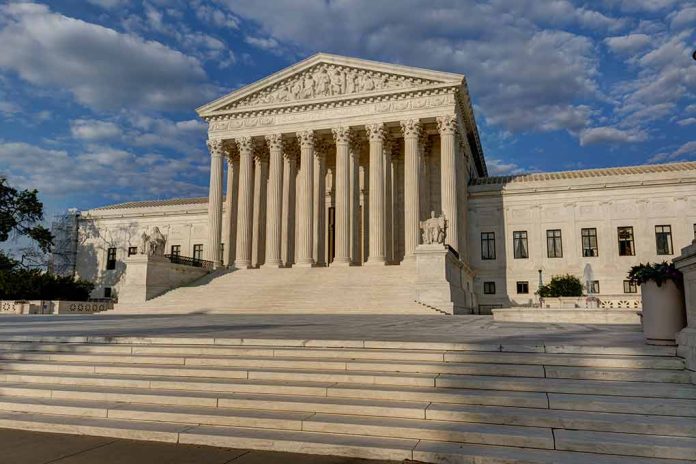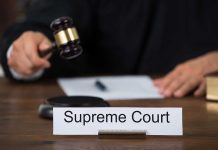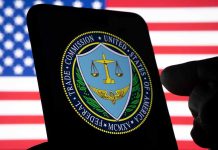
The Supreme Court declines to hear an appeal from a January 6 Capitol rioter, raising concerns about free speech limitations.
At a Glance
- John Nassif, convicted for his role in the Jan. 6 Capitol attack, had his appeal rejected by the Supreme Court.
- Nassif challenged a law banning “parading, picketing, and demonstrating” inside the Capitol on First Amendment grounds.
- Lower courts ruled the Capitol is not a public forum for protests, allowing broader restrictions.
- The decision affects over 460 defendants charged with the same misdemeanor related to the Jan. 6 riot.
- Former President Trump has promised to pardon some individuals convicted of Jan. 6-related crimes if re-elected.
Supreme Court Rejects Appeal, Upholds Restrictions
The U.S. Supreme Court has declined to hear an appeal from John Nassif, a Florida man convicted for his involvement in the January 6, 2021, Capitol breach. Nassif challenged the constitutionality of a law prohibiting “parading, picketing, and demonstrating” inside the Capitol, arguing it infringes on First Amendment rights. The Court’s decision to reject the appeal without explanation leaves the lower court’s ruling intact, potentially affecting hundreds of similar cases.
Nassif, who received a seven-month prison sentence for misdemeanors including disorderly conduct and violent entry, sought to overturn his conviction by claiming the statute violated free speech protections. Lower courts, including the U.S. Court of Appeals for the D.C. Circuit, dismissed Nassif’s arguments, maintaining that the Capitol is not a public forum for protests.
John Nassif of Florida was convicted of four misdemeanor counts in connection to the breach at the U.S. Capitol and received a 7-month prison term. https://t.co/khWcJWavo7
— The Epoch Times (@EpochTimes) November 13, 2024
Legal Interpretations and Implications
The D.C. Circuit’s classification of the Capitol as a nonpublic forum allows for broader restrictions on speech and assembly. This interpretation contrasts with the D.C. Court of Appeals’ recognition of some areas within the Capitol as public forums. U.S. District Judge John Bates upheld the parading charge, emphasizing the necessity of restrictions to maintain order and security in the Capitol.
This ruling has significant implications for over 460 defendants charged with the same misdemeanor related to the January 6 riot. It underscores the ongoing legal debates surrounding the events of that day and the balance between security concerns and First Amendment protections in sensitive government locations.
Broader Context of January 6 Legal Proceedings
The Nassif case is part of a larger legal landscape surrounding the January 6 Capitol breach. Nearly 600 defendants have been charged with assaulting law enforcement, with ongoing arrests continuing. The most severe sentences have been handed down to leaders like Stewart Rhodes and Enrique Tarrio for seditious conspiracy and orchestrating the riot.
“I am inclined to pardon many of them. I can’t say for every single one because a couple of them, probably they got out of control.” – Donald Trump
Former President Donald Trump has promised to pardon some individuals convicted of January 6-related crimes if re-elected, adding a political dimension to the ongoing legal proceedings. Trump himself faces charges related to the events of January 6 and efforts to overturn the 2020 election, to which he has pleaded not guilty.
Ongoing Legal Developments
The Supreme Court’s decision in the Nassif case follows a recent ruling in United States v. Fischer, which narrowed the scope of an obstruction statute used against January 6 defendants. This highlights the evolving nature of the legal interpretations surrounding the Capitol breach and its aftermath.
In a related development, a federal judge recently vacated pretrial dates in Trump’s case following his election win, after a Supreme Court ruling on presidential immunity. This decision underscores the complex interplay between political events and legal proceedings in the aftermath of January 6.
As the legal ramifications of the Capitol breach continue to unfold, the Supreme Court’s rejection of Nassif’s appeal sets a precedent that may influence future cases related to protests and demonstrations in government buildings. The decision reinforces the government’s authority to restrict certain forms of expression in sensitive locations, even as debates about the limits of free speech in such contexts persist.
Sources:
- Supreme Court rejects appeal over Jan. 6 ‘parading’ charge
- US Supreme Court Rejects Jan. 6 Defendant’s Appeal Over Parading Charge










